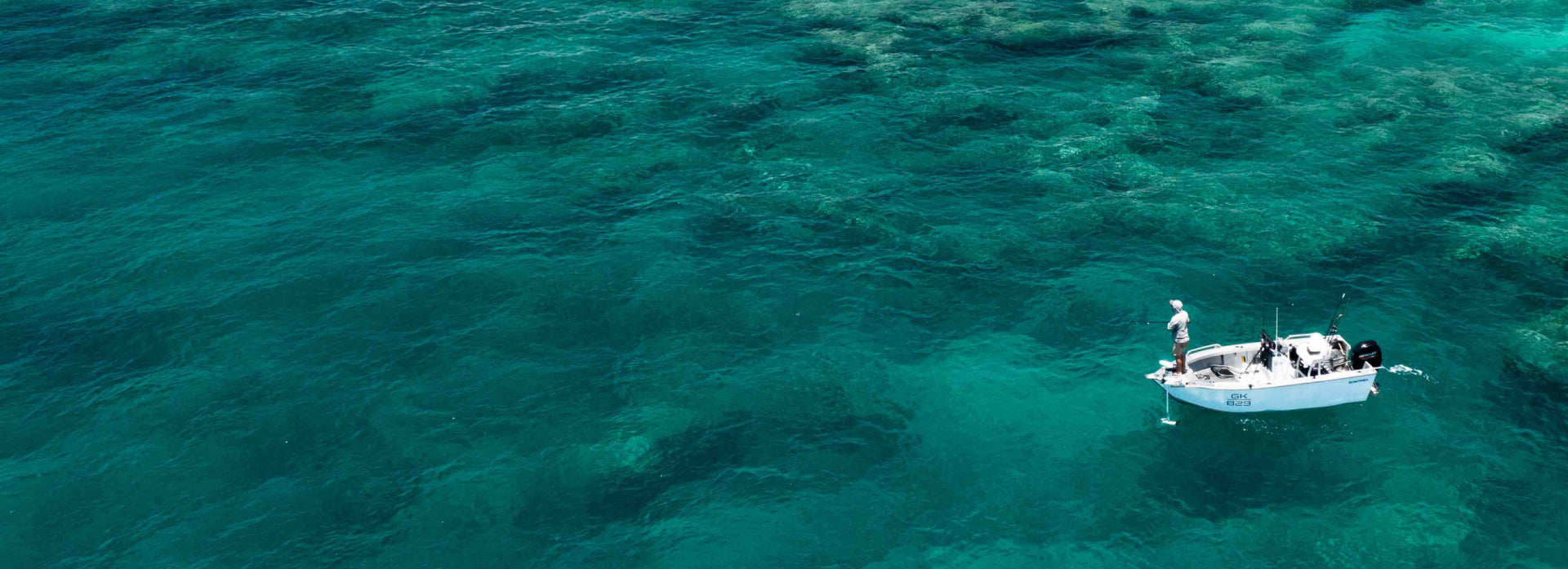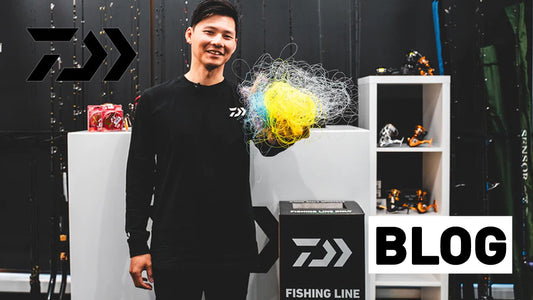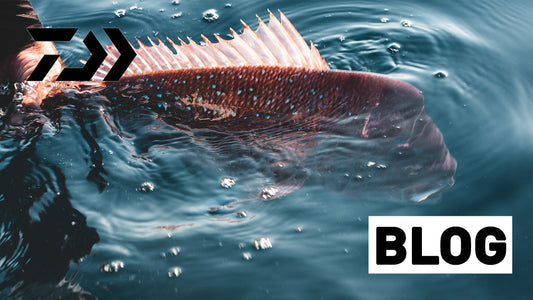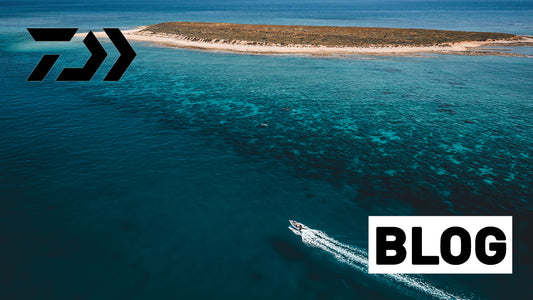Daiwa's Line Recycling Project
Introducing Daiwa’s Line Recycling Project, where we are committed to minimising fishing line waste in landfills and promoting an earth-friendly approach to fishing. This program aims to tackle the environmental challenges posed by discarded fishing line by providing a responsible and sustainable solution. With a clear objective in mind, we strive to recycle an impressive 150,000 kilometres of fishing line within the next 5 years throughout our network of participating tackle stores. By recycling fishing line, we can reduce the harmful impact on our ecosystems and contribute to a cleaner and healthier environment. Join us on this important journey as we take significant steps towards a more sustainable future. Together, we can make a lasting difference in protecting Australia's waterways.
Line Recycled
Help us reach our goal of recycling 150,000km of fishing line in 5 years

Hold Onto Any Used Fishing Line
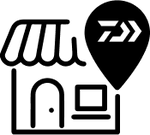
Head To Local Daiwa Dealer

Dispose Of Fishing Line In Daiwa's Zero Waste Bins™

The fishing line is then transformed into new products.
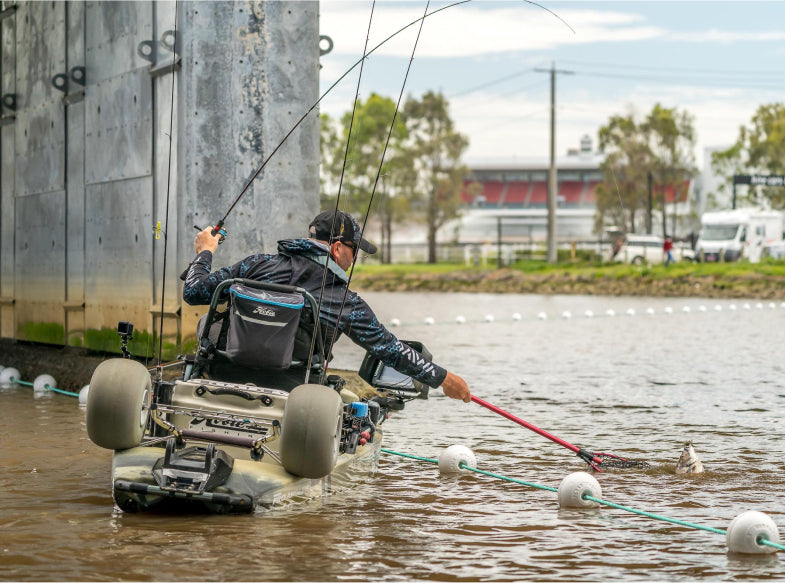
Be Earth Friendly
At Daiwa Australia, we remain steadfast in our commitment to our corporate promise: "Whenever we undertake anything, we will be environmentally sensitive and always keep in mind that the field for all of our activities is the earth." With this principle at the heart of our operations, we are thrilled to launch Daiwa’s Line Recycling Project, which aims to recycle an impressive 150,000 kilometres of fishing line over the next 5 years. In collaboration with our valued Daiwa tackle stores, we are working to achieve and surpass this ambitious goal. We encourage all anglers and individuals passionate about preserving our marine ecosystems to join us in this initiative. Simply take any old or damaged fishing line you find to one of our participating Daiwa tackle stores, where you'll find one of our Zero Waste Boxes™. These boxes are designed to securely collect fishing line for recycling. By doing so, we can ensure that harmful waste is kept out of our Australian waterways, promoting cleaner and healthier environments for marine life.
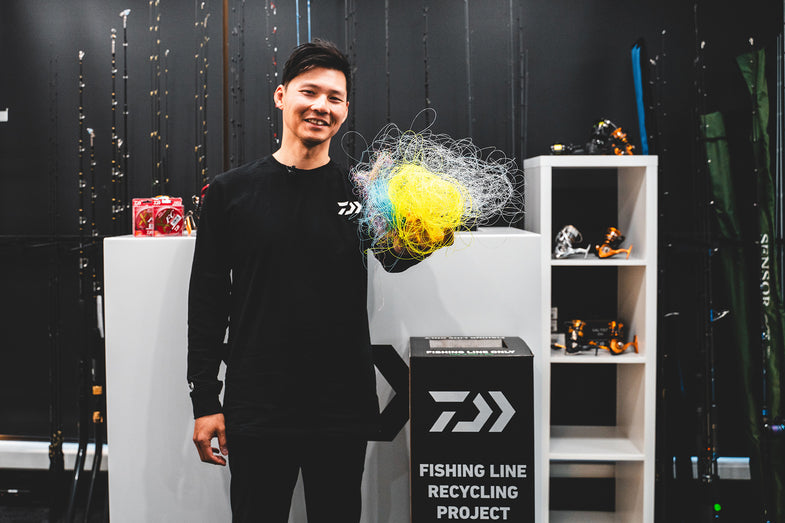
Our Goal
Daiwa’s Line Recycling Project has an ambitious goal at its core, and that is to create a comprehensive and sustainable cycle for fishing line waste. We are dedicated to continually expanding our network of Zero Waste Boxes™ across Australia, making it easier than ever for anglers to responsibly dispose of their old or damaged fishing line. But our commitment doesn't end there. Through this project we aim to utilise the raw materials produced from the recycled line, to create hardbody lures and tackle storage systems such as the Daiwa D-Box, which in turn will be recycled to create a closed-loop system. This means the products made from the recycled line can be recycled themselves, enabling us to re-create the process and minimise waste. By reducing the amount of fishing line that ends up in landfills, we are not only making a positive impact on the environment, but also fostering a stronger and more sustainable fishing community.
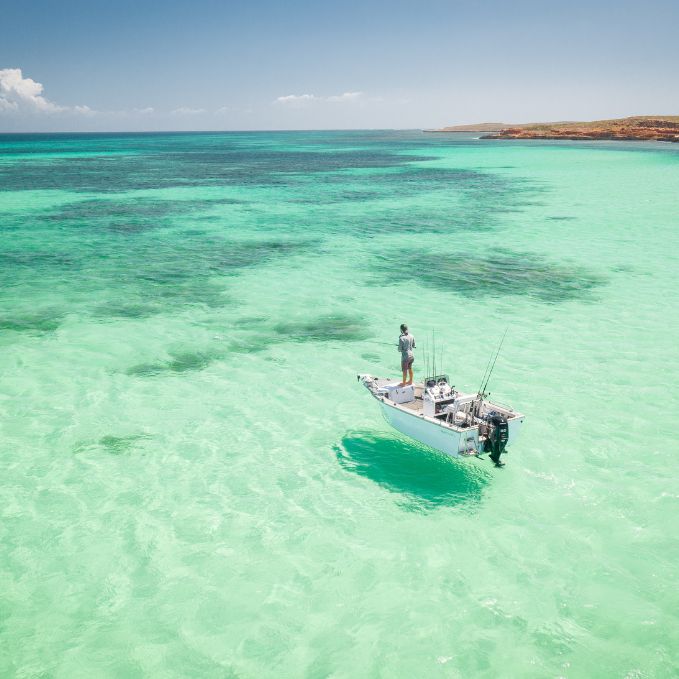
What Happens To Your Recycled Fishing Line
Items recycled through this initiative follow a strictly monitored chain of custody before reaching manufacturers to be transformed into something new. Waste is checked in, assessed and sorted by material type, cleaned, and processed into a format manufacturers can use. Depending on the material and manufacturer, end products could includeoutdoor furniture, plastic shipping pallets, watering cans, storage containers, construction tubes, flooring tiles, playground surface covers, and athletic fields, among others.

Recycle Your Line At Any Of These Participating Daiwa Dealers
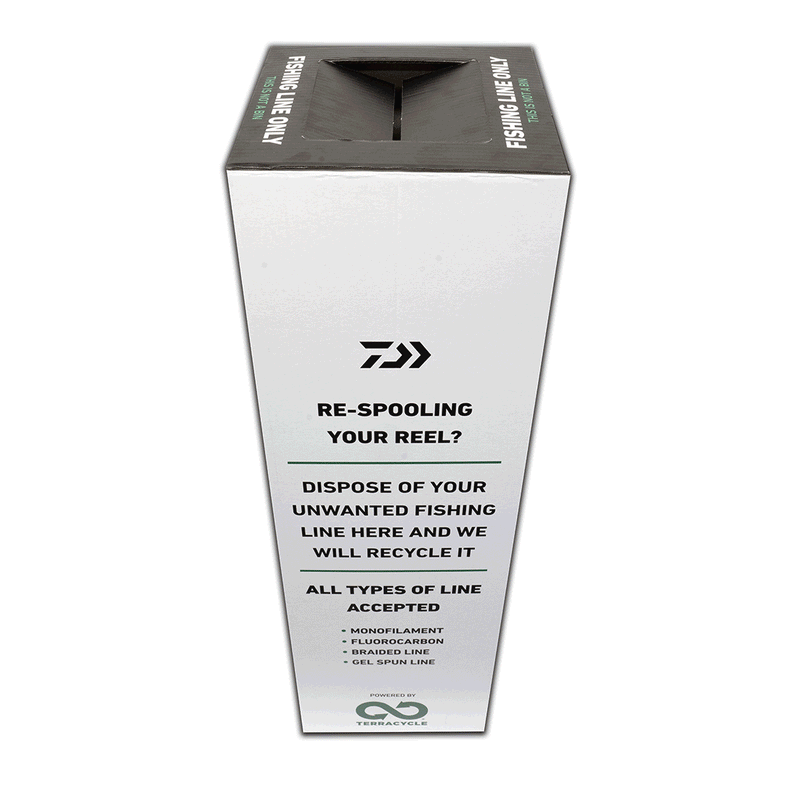
Keep An Eye Out For Our Zero Waste Boxes™
To help achieve this goal, we’re working with TerraCycle® to place our Zero Waste Boxes™ at all of the participating Daiwa dealers above. These boxes are specifically designed to receive and store old fishing lines for recycling purposes. We encourage anglers to gather their unused or damaged fishing lines and bring them to any of these Zero Waste Boxes™.
